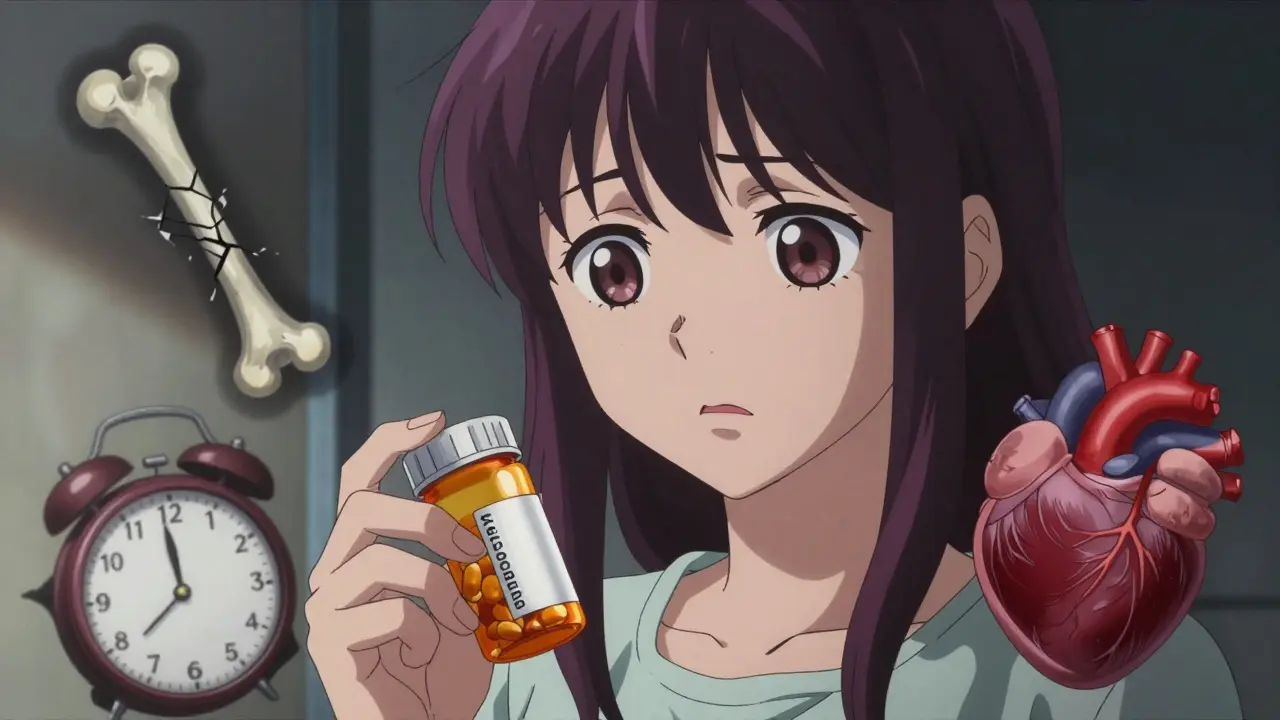Side Effects: Simple, Practical Advice for Everyday Medicines
Side effects are any unwanted changes you notice after taking a drug or supplement. Some are mild and expected — a little nausea or drowsiness — while others are rare but serious, like trouble breathing or severe rash. Knowing how to tell the difference, how to lower risk, and what to do if something goes wrong saves time and worry.
Common vs serious side effects — what to watch for
Common side effects usually show up soon after you start a medicine and often fade over days to weeks. Examples: mild stomach upset from antibiotics, temporary headaches when starting certain supplements, or sleepiness with some antihistamines. These are uncomfortable but not usually dangerous.
Serious side effects need quick action. Look for: sudden shortness of breath, chest pain, severe dizziness or fainting, swelling of face/lips/tongue, high fever, yellowing of skin or eyes, or bloody stools. If you see any of those, stop the medicine if it’s safe and seek emergency care — call local emergency services right away.
How to reduce risk and what to do if side effects occur
Start with basics. Read the leaflet that comes with the medicine. Keep a short list of everything you take — prescriptions, over-the-counter meds, vitamins and herbs — and share it with every clinician or pharmacist you see. That prevents dangerous interactions.
Follow recommended doses. For example, acetaminophen is safe at suggested doses but can harm the liver if you take too much or mix it with alcohol. Some drugs require blood tests or monitoring — like warfarin (INR checks), statins (liver checks), or certain diabetes medicines (blood sugar tracking). Ask your doctor which checks apply to you.
If a new side effect starts, don’t guess. Call your pharmacist or prescriber and describe exactly when it began, how bad it is, and what other medicines or supplements you used. For mild issues they may suggest dose change, timing adjustments, or an over-the-counter remedy. For more serious problems they may advise stopping the medicine or switching to a safer option.
Natural doesn’t always mean safe. Herbal supplements can interact with drugs and change how they work. Tell your provider about anything you buy online or in health shops — some supplements mentioned on review pages can affect prescription meds.
Keep records. Note dates, symptoms, and what helped. That makes follow-up visits far more useful. If a reaction looks unusual or possibly dangerous, report it to your national drug safety system (for example, FDA MedWatch in the U.S.) — reporting helps scientists spot patterns and keeps everyone safer.
Final tip: trust your instincts. If something feels seriously wrong, get immediate care. If it’s annoying but stable, ask for practical fixes from your pharmacist or doctor before stopping important treatments. Small steps — a quick call, a list of meds, routine tests — prevent most problems and keep your treatment on track.
Oral Corticosteroid Alternatives for Severe Asthma: Reducing Side Effects and Costs
Oral corticosteroids for severe asthma cause serious side effects like diabetes and osteoporosis. Biologics reduce steroid dependence and hospitalizations, but access and cost remain challenges. Learn about alternatives and future treatments.
View MoreSide Effects After Switching to Generics: When to Worry and How to Protect Yourself
Switching to generic medications can save money, but sometimes leads to unexpected side effects. Learn which drugs carry higher risks, how to spot warning signs, and steps to take if you experience problems. This guide explains the science behind generic switching issues and practical tips for staying safe.
View MoreHow Your Gut Bacteria Affect Drug Side Effects and Why It Matters
Your gut bacteria can turn medications into toxins or block them entirely. Learn how microbiome-drug interactions explain unexpected side effects and why personalized medicine is finally taking them seriously.
View MoreSymmetrel (Amantadine) Explained: Uses, Dosage, Side Effects & Safety Guide
A clear, up‑to‑date guide on Symmetrel (amantadine) covering what it treats, how it works, proper dosing, safety tips and common side effects.
View MoreCnidium Supplement (Cnidium monnieri): Benefits, Dosage, Side Effects [2025 Guide]
What cnidium is, what it can and can’t do, exact dosing steps, safety, and how to buy a legit product in 2025-clear, evidence-based, and no hype.
View MoreEffexor: Uses, Side Effects, and What to Expect with Venlafaxine
Effexor (venlafaxine) is a common antidepressant prescribed for depression and anxiety. This article dives deep into what Effexor is, how it works, its side effects, practical tips for users, and real-world experiences. You'll find straight talk about what to expect and how to manage Effexor in daily life.
View More




![Cnidium Supplement (Cnidium monnieri): Benefits, Dosage, Side Effects [2025 Guide]](/uploads/2025/08/cnidium-supplement-cnidium-monnieri-benefits-dosage-side-effects-2025-guide.webp)
